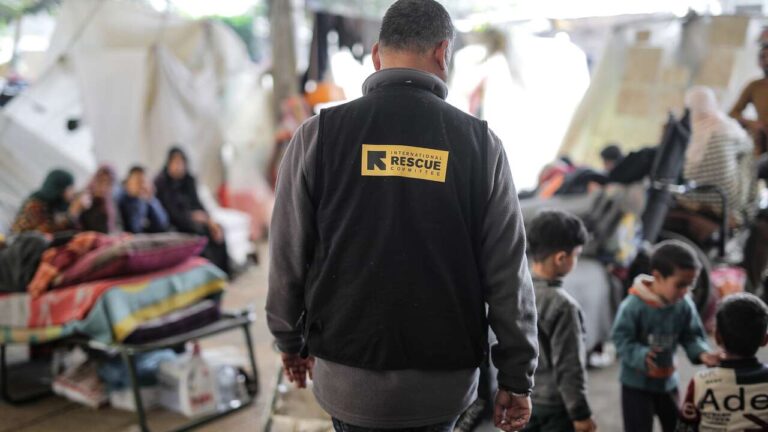Amman, Jordan, April 16, 2024 — Millions of Palestinians face hunger, malnutrition and widespread disease in Gaza, and the International Rescue Committee (IRC) has warned of an impending public health disaster in Gaza.
Nearly the entire population of Gaza has been without access to essential food, clean water, and medical care for six months, pushing the population to the brink of starvation.Civilians were deprived of their right to health, compounded by deadly attacks on more than 200 people aid worker Provide lifesaving assistance. The IRC and our partners are seeing many cases of patients, including children, dying from easily preventable or treatable diseases.prediction by London School of Hygiene and Tropical Medicine and Johns Hopkins Humanitarian Health Center It reveals that even if an immediate ceasefire is reached, up to 12,000 people in Gaza will die from the disease. If the conflict escalates further, nearly 90,000 people could die from secondary health effects alone.
Dr Seema Jilani, Senior Health Technical Advisor for Emergencies, said:
“There is no longer a fully functioning hospital in Gaza. IRC staff and partners in Gaza continue to witness the devastation of the remaining medical facilities. Given the lack of health care and strain on existing health services, people are often forced to consider whether it is worth risking death or encountering violence to go to hospital. Patients as young as 4 months old have died from preventable or easily treatable illnesses such as pneumonia and gastroenteritis.
“Many patients are dead on arrival or too unwell to require resuscitation due to delayed treatment. Even when people arrive at medical facilities, laboratories are not functioning and , mass casualties are prioritized for triage, so that patients with infectious diseases may not be seen for weeks at a time because trauma patients are admitted so often. Although there have been no large-scale epidemics in Gaza for more than a decade, residents are currently suffering from influenza, coronavirus, pneumonia, bacterial red enteritis, cholera, polio, measles, and myelitis. They are vulnerable to infections such as inflammation.
“Gaza's health system has been destroyed by Israel, and diseases that were once easily controlled are now rampant, with children, especially malnourished ones, being the most vulnerable. Forecasts suggest cholera, cholera, The spread of measles, polio, and meningococcal meningitis has been suggested to be a deadly threat, with 8,000 reported cases of hepatitis A, which is vaccine-preventable but usually limited. However, without timely medical care, it can lead to liver failure, complications, and even death. was forewarnedtyphoid fever and cholera are also at increased risk.
Immunity was previously ensured thanks to high levels of vaccination, but immunity is declining, especially among children and infants, because of missed multiple doses of important vaccines such as hepatitis B, polio, and rotavirus. doing.
“Respiratory and other endemic infections are currently widespread due to exposure, overcrowding in shelters, lack of access to adequate sanitation facilities, and inability to access treatment. IRC and Gaza Our partners in the United States have seen children die from diarrhea, with rates 25 times higher than before October 7, which could otherwise be easily treated with hydration and antibiotics. Treatable: Of the more than 330,000 respiratory infections reported between October and January, half were in children under the age of five, and given Gaza's current state of health care, many are fatal or debilitating. may face consequences
“Our findings demonstrate the dire risks to humanity, with humanitarian aid to Gaza delayed, access restricted, and an ongoing war that threatens the very health workers trained to respond to the community. Thing. Despite hopes stemming from recent promises by Israel to increase assistance, the situation for Gazans remains catastrophic. The IRC continues to call for an immediate and continued ceasefire, the opening of all border crossings, and unhindered free access to aid to avoid a complete collapse of public health in Gaza. ”
The IRC also welcomes all efforts to prevent further escalation of conflict, which is the last thing the Middle East needs. Diplomatic focus must not ignore the ongoing conflict and trauma in Gaza, where millions of Palestinians and detained Israeli hostages face a growing humanitarian nightmare.
The IRC and partners in Gaza provide emergency and critical care, including direct medical care, at Gaza's few remaining operational hospitals, as well as procure and distribute medical supplies and medicines. IRC works with partners to provide psychosocial support, cash assistance, and early childhood development programs in many shelters in Gaza. The IRC is working to expand programs on water, sanitation, nutrition, and protection of women and children.


